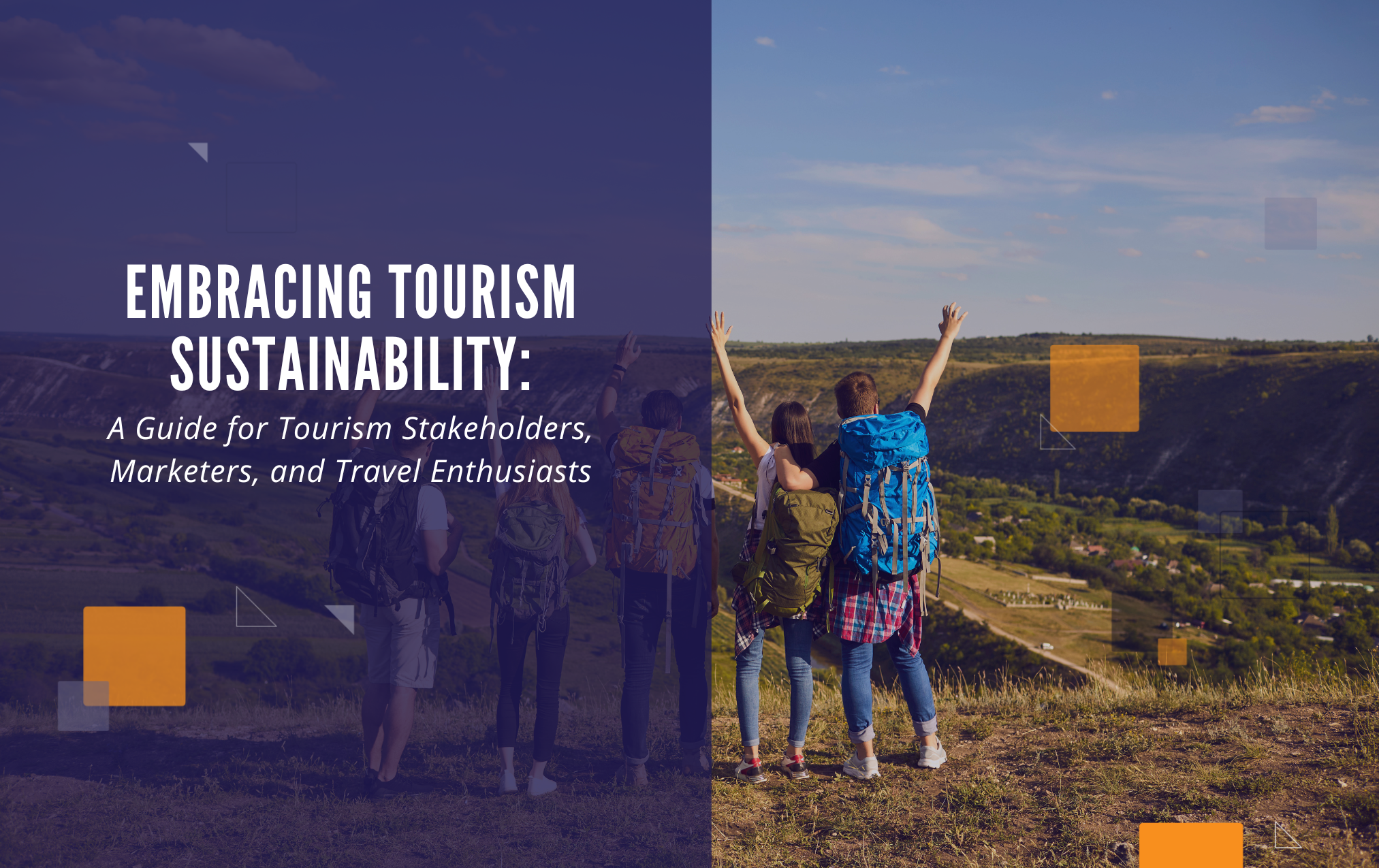
Embracing Tourism Sustainability: A Guide for Tourism Stakeholders, Marketers, and Travel Enthusiasts
In the evolving tourism landscape, sustainability has emerged as a cornerstone principle for fostering thriving destinations, preserving cultures, and ensuring long-term economic viability. For tourism stakeholders, destination marketers, and passionate travelers alike, understanding the multifaceted dimensions of sustainability is paramount. Here are three key insights into how sustainability intersects with sustaining people, place, and profitability within the tourism industry.
-
Cultivating Cultural Preservation:
One of the most profound impacts of tourism is its influence on local cultures and communities. Sustainable tourism practices prioritize the preservation and celebration of indigenous traditions, languages, arts, and customs. It's imperative for stakeholders to engage with local communities respectfully, ensuring their voices are heard, and their cultural heritage is respected. By embracing cultural diversity and fostering meaningful interactions between travelers and locals, destinations can enrich the tourism experience while safeguarding cultural integrity.
-
Balancing Environmental Conservation:
The natural environment serves as the foundation of tourism, attracting visitors with its scenic beauty, biodiversity, and recreational opportunities. However, the very activities that draw tourists can also jeopardize fragile ecosystems and contribute to environmental degradation. Sustainable destination management involves implementing strategies to minimize carbon emissions, reduce waste, conserve water resources, and protect wildlife habitats. By adopting eco-friendly practices and promoting responsible behavior among travelers, destinations can mitigate their ecological footprint and preserve natural wonders for future generations to enjoy.
-
Driving Economic Resilience:
Sustainable tourism is not only about safeguarding cultural heritage and environmental resources but also about fostering economic prosperity for local communities. By investing in community-based tourism initiatives, empowering small businesses, and creating equitable employment opportunities, destinations can enhance social inclusivity and distribute the benefits of tourism more equitably. Moreover, sustainable tourism practices can bolster destination resilience, enabling communities to withstand external shocks such as economic downturns, natural disasters, or pandemics.
In essence, sustainability in tourism encompasses a holistic approach to sustaining people, place, and profitability. By prioritizing cultural preservation, environmental conservation, and economic resilience, stakeholders can cultivate destinations that thrive in harmony with their natural and cultural heritage.
This article was crafted by Stephen Ekstrom, a seasoned tourism expert, empowering speaker, and CEO & Co-founder of The Tourism Academy. With a profound commitment to advancing sustainable tourism practices, Stephen holds a certificate in sustainable business strategy from Harvard Business School. His expertise in the field empowers stakeholders to embrace sustainability as a catalyst for positive change, driving economic growth, cultural preservation, and environmental stewardship within the tourism industry.


Leave a comment